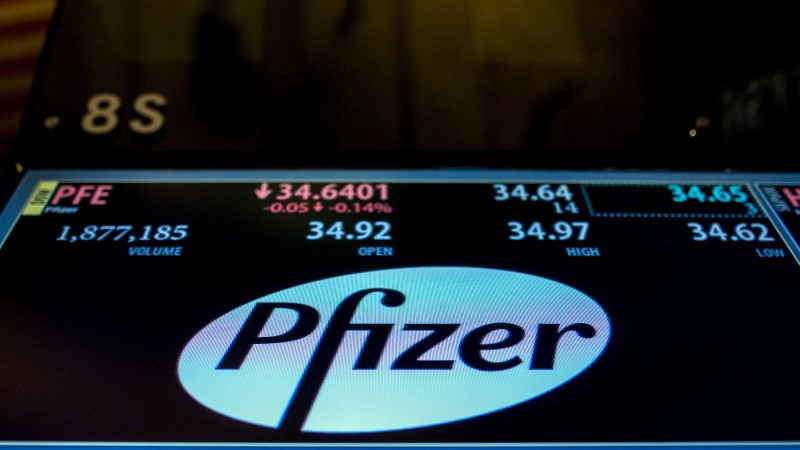By Greg Roumeliotis and Kevin Drawbaugh
NEW YORK/WASHINGTON (Reuters) - Pfizer Inc's (N:PFE) talks to acquire Allergan Plc (N:AGN) in a $150 billion (98 billion pounds) deal that would see the U.S. drug giant redomicile in Ireland accelerated on Wednesday, as the U.S. Treasury prepared to clamp down further on such tax inversions.
Pfizer is negotiating a price of $370 to $380 for each Allergan share, a person familiar with the discussions said, asking not to be identified because the talks are confidential. Allergan shares ended trading on Wednesday at $310.8 per share.
While negotiations have made progress in recent days, an agreement is not imminent and its timing remains uncertain following the Treasury's disclosure that it would seek to tighten the rules on inversions, the source added.
Inversions typically involve a U.S. multinational buying a smaller foreign competitor and relocating to its home country, if only on paper, to escape U.S. taxation. Ireland is a common destination. Management usually stays in the United States.
"Later this week, we intend to issue additional targeted guidance to deter and reduce further the economic benefits of corporate inversions," according to a letter from the Treasury seen by Reuters.
Pfizer was not named in the letter, which was signed by Treasury Secretary Jack Lew and addressed to four senior lawmakers: U.S. Senators Ron Wyden and Orrin Hatch, and Representatives Kevin Brady and Sander Levin. All four serve on the Senate and House tax committees.
"We have no further comment beyond what is in the letter, at this time," a Treasury spokesman said. Pfizer and Allergan also declined to comment.
Levin said in a statement: "The fact that American companies, including Pfizer, continue to pursue inversions makes clear that additional steps are needed to stop this trend."
Noting that Treasury can only do so much on its own, Levin urged Congress to "get off the sidelines and take action to change the law to stop these tax-motivated inversions."
As a wave of inversions peaked in September 2014, Treasury took several regulatory actions to reduce the tax benefits of inverting, while also making new deals more difficult. That slowed deal flow but did not stop it entirely.
For months tax experts have speculated about what could come next from Treasury. Possible steps might include tightening the rules on two strategies related to inversions, tax experts said: so-called "earnings stripping" and "skinny down" distributions.
Earnings-stripping rules combat shifting of U.S. profits out of the country to low-tax jurisdictions. Treasury has struggled to write new rules on this under present law, said tax experts.
Rules targeting skinny-down distributions are meant to keep U.S. companies from shrinking their operations ahead of inversions to evade standards for minimum levels of foreign ownership in inverted companies.
A combination of Dublin-based Allergan with New York-based Pfizer would follow an unprecedented wave of consolidation in the pharmaceutical industry as companies seek access to new drugs and increased leverage on pricing.
Apart from tax considerations, a deal would give Pfizer access to Allergan's dominance in the aesthetics and ophthalmology markets, and displace Johnson & Johnson (N:JNJ) as the world's biggest healthcare group.

Bloomberg News first reported on the price that Pfizer and Allergan were discussing.